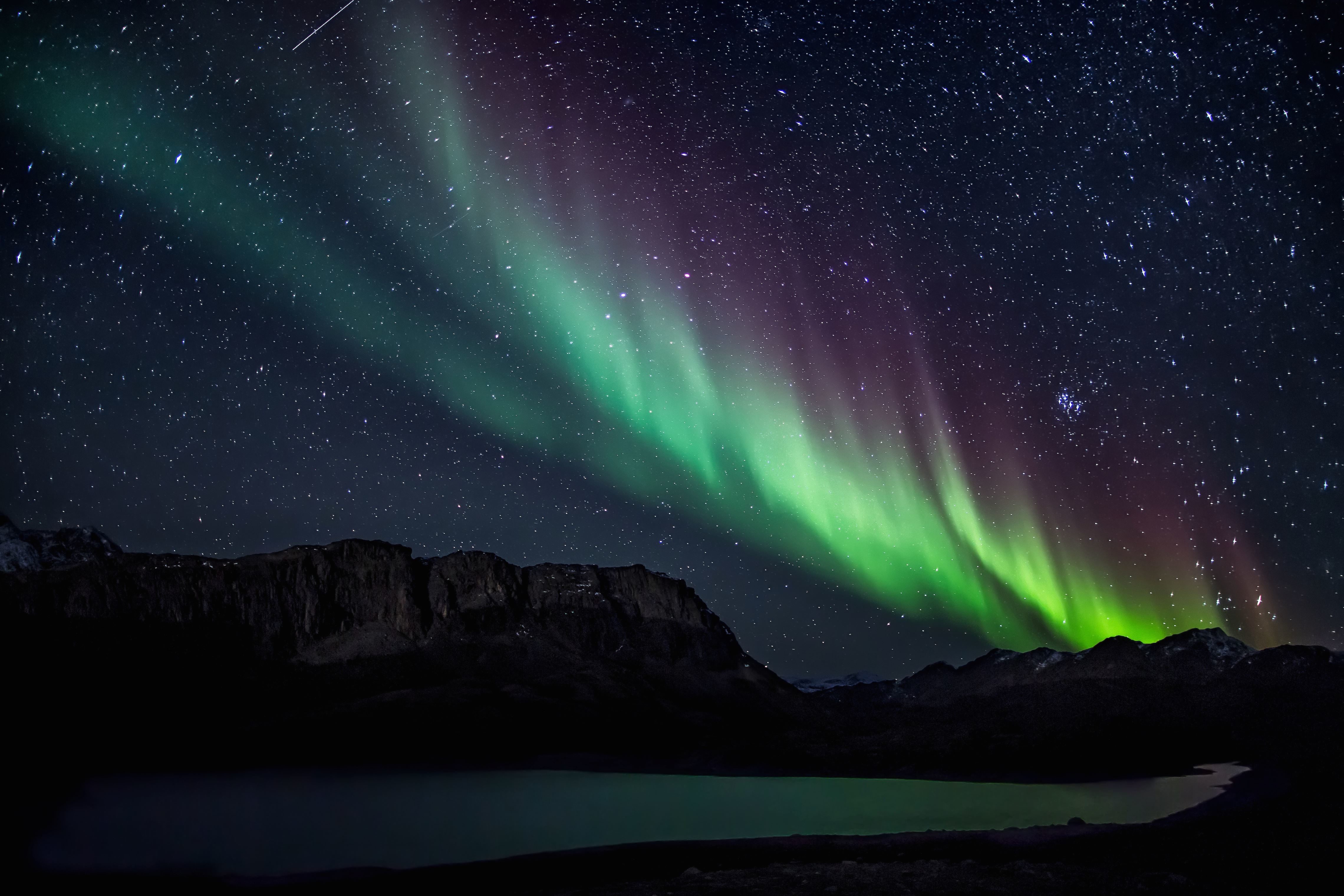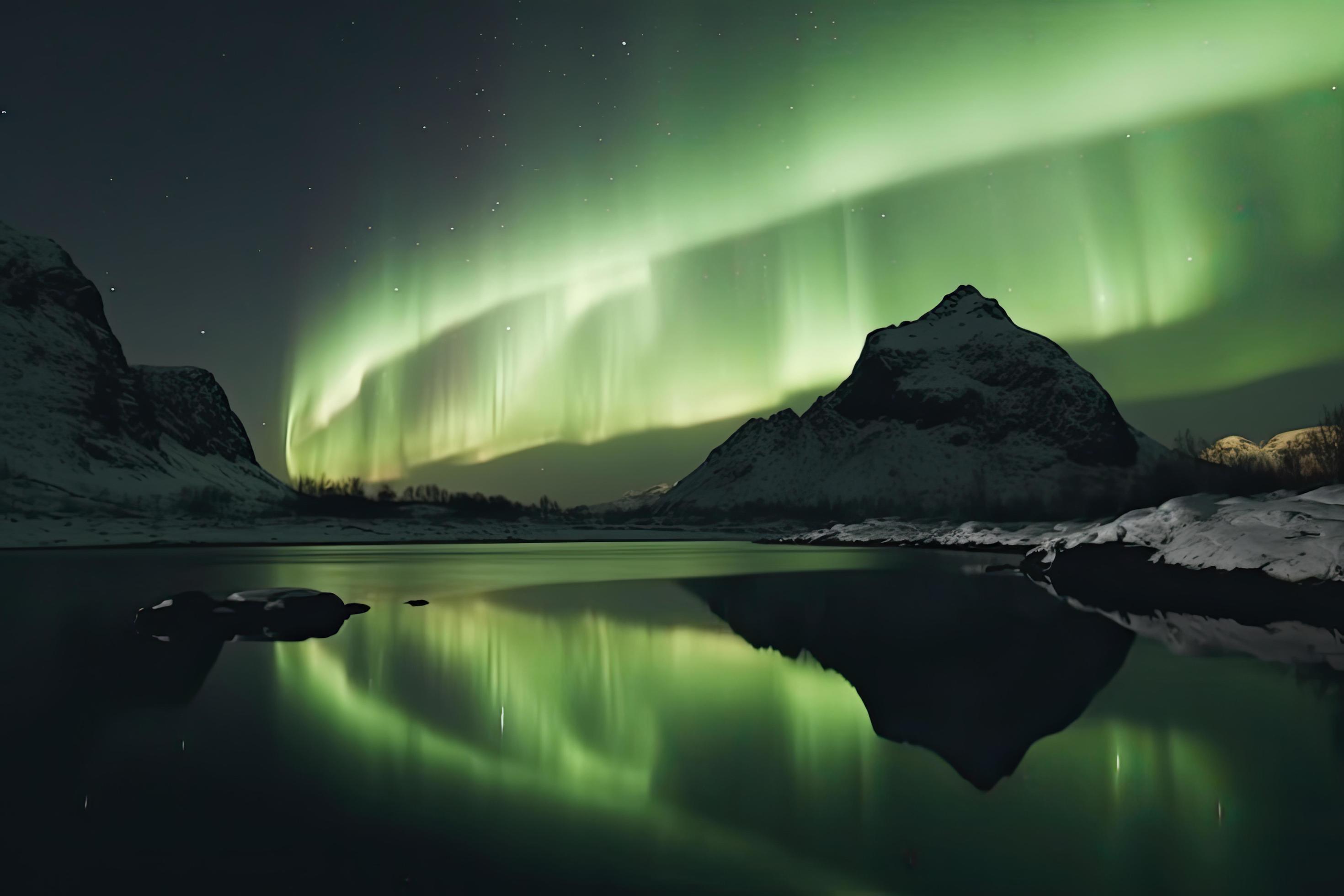Aurora In Greece - A Sky Spectacle
Picture this: you are standing under the Greek night sky, perhaps near an ancient ruin or by the sea, and suddenly, the heavens begin to glow with colors you never thought possible. This isn't a scene from a dream, it is a very real, if somewhat rare, occurrence. The aurora, a phenomenon usually linked with far northern places, has made surprising appearances over Greece, offering a truly special sight. It is, you know, a bit like finding something incredibly powerful in a place you least expect it, a true wonder.
For many, the idea of seeing the aurora in Greece seems almost like a tall tale. These lights, often called the Northern Lights or Southern Lights, typically grace the skies above the Arctic or Antarctic circles. However, when solar activity really ramps up, when those numbers get quite high, the reach of these celestial displays can stretch much further south, bringing a touch of the polar magic to more temperate areas. It is, to be honest, a very rare treat, making each reported sighting a big deal for those who love sky-watching.
This article will explore what makes these unexpected appearances possible, looking at the science that brings them about, and how people might prepare to catch a glimpse of such a wonderful event. We will also touch on how information about these rare happenings spreads through communities and even consider some past tales. Basically, it is all about understanding this beautiful, fleeting moment in the Greek night.
- Cyclebar Berkeley Ca
- July 17 2024 Sound Bath Colorado
- Lindsay Bercosky Of Leaked
- Fitbryceadams Gym Ivy Jade
- Whiptrax Onlyfans Leaks
Table of Contents
- Is Seeing the Aurora in Greece Even Possible?
- What Makes the Aurora in Greece So Special?
- How Do We Know About Aurora in Greece Sightings?
- Preparing for a Glimpse of Aurora in Greece
- Are There Stories of Aurora in Greece from the Past?
- What Challenges Come with Seeking Aurora in Greece?
- The Enduring Fascination with Aurora in Greece
Is Seeing the Aurora in Greece Even Possible?
It's a question many ask, and for good reason. The northern lights are, you know, famous for their appearances in places like Scandinavia or Canada. Greece, with its sunny disposition and southern latitude, does not typically come to mind when thinking about these sky shows. However, the answer is a definite "yes," though it is not an everyday event. The conditions need to be just right, with a very strong solar storm sending charged particles our way. So, it is kind of like waiting for a very specific alignment of stars, or rather, solar winds.
The Science Behind Aurora in Greece's Rare Appearances
The science behind the aurora in Greece is pretty much the same as anywhere else, just on a much grander scale. Charged particles from the sun, ejected during solar flares or coronal mass ejections, travel through space. When these particles hit Earth's magnetic field, they are pulled towards the magnetic poles. As they interact with gases in our atmosphere, they create light. For an aurora to be seen at lower latitudes, like in Greece, the solar storm has to be exceptionally powerful. This means the magnetic field around Earth gets, in a way, pushed harder, allowing the lights to be visible further from the poles. It truly depends on those "numbers" of solar activity, how intense they get.
What Makes the Aurora in Greece So Special?
The rarity of the aurora in Greece is, in itself, a big part of what makes it so unique. People do not expect to see such a sight in a place known for ancient history and warm seas. When it does appear, it is often a softer, more subtle glow, rather than the dramatic, dancing curtains seen up north. This subtle nature, however, lends it a particular charm. It is almost like a quiet secret shared between the sky and the few lucky observers. You could say it is a bit like finding a hidden gem.
The Unexpected Beauty of Aurora in Greece
The beauty of the aurora in Greece lies in its sheer unexpectedness. Imagine the typical Greek night sky, filled with stars, maybe a bright moon, and then a faint, reddish or purplish glow starts to appear on the horizon. It is not always a vibrant green, which is what many people picture when they think of auroras. Sometimes it is a gentle blush across the sky, or a soft column of light. This subtle presence is, in some respects, quite captivating. It is a reminder that nature holds many surprises, and that even a "petite" display can be utterly wonderful. This unexpected vision truly leaves an impression.
How Do We Know About Aurora in Greece Sightings?
Knowing about aurora in Greece sightings often comes down to quick communication and community efforts. Since these events are so rare, there is no regular "aurora forecast" for Greece in the way there is for, say, Iceland. Instead, people rely on alerts from space weather agencies and, very importantly, word of mouth and online groups. It is, you know, a bit like a network of enthusiasts keeping an eye out for something truly special. When conditions seem right, people start to look up and share what they see.
Community Sharing and Data for Aurora in Greece
The sharing of information about aurora in Greece sightings is really quite important. Much like a community focused on a new game or project, people interested in sky events will gather online. They discuss the "lore" of past sightings, share tips on how to "build" a good viewing setup, and pore over "data" from space weather sites. Websites and social media groups become a kind of transparency portal, where people can access regularly updated information about solar activity. This collective effort means that when an aurora appears, news spreads quickly, allowing more people to potentially witness it. It is, to be honest, a very collaborative process.
Preparing for a Glimpse of Aurora in Greece
Getting ready to see the aurora in Greece requires a good bit of patience and a willingness to be flexible. Since it is so infrequent, you cannot just plan a trip around it. Instead, it is more about being prepared when the opportunity arises. This means keeping an eye on space weather forecasts, particularly those that predict strong geomagnetic storms. You also need to consider your location; light pollution is a big problem for viewing faint auroras. So, a place away from city lights is nearly always a better bet.
Best Practices for Observing Aurora in Greece
For observing the aurora in Greece, there are a few things that really help. First, find a spot with a clear view of the northern horizon, away from bright lights. The darker the sky, the better your chances of seeing the often subtle glow. Second, give your eyes time to adjust to the dark, perhaps 20-30 minutes. Third, a camera can sometimes pick up colors that your eyes might miss, especially if the aurora is faint. Using a long exposure setting on a camera can reveal hues that are barely visible to the naked eye. It is, in a way, about being ready to capture that fleeting moment, much like being prepared to "clone a database" for testing, ensuring you can replicate or record the conditions.
Are There Stories of Aurora in Greece from the Past?
It is fascinating to wonder if people in ancient times, or even more recently, saw the aurora in Greece and what they made of it. Without modern scientific understanding, such a sight would have been truly mysterious, perhaps even a bit frightening. Historical records from lower latitudes do mention strange sky lights, often described as "blood-red" skies or "burning" heavens. These accounts, you know, suggest that auroras have indeed appeared over Greece throughout history, even if they were not recognized as such.
Historical Accounts of Aurora in Greece
While specific ancient Greek texts detailing auroral sightings are not common, there are broader historical accounts from the Mediterranean region that speak of unusual sky phenomena. These descriptions often align with what we now know about very strong auroras, which can appear red and stretch far from the poles. Imagine, for instance, what an ancient philosopher might have thought, seeing the sky seemingly on fire. These historical observations, even if vague, provide a kind of "lore" for the aurora in Greece, suggesting that these rare events have always been a part of our planet's story, inspiring wonder and perhaps a little fear. It is, basically, a reminder of how little we understood some things in the past.
What Challenges Come with Seeking Aurora in Greece?
Seeking the aurora in Greece presents some distinct challenges. The primary one is its extreme rarity. You cannot simply book a trip and expect to see it. It requires a lot of luck and being in the right place at the right time. Another big hurdle is light pollution. Greece, like many places, has a growing amount of artificial light at night, which can easily wash out the often faint glow of a southern aurora. It is, you know, a bit like trying to find a tiny, subtle detail in a very bright picture.
Overcoming Obstacles for Aurora in Greece Viewers
Overcoming the obstacles for aurora in Greece viewing means being proactive and patient. First, staying informed about space weather is key. Websites and apps that track solar activity can give you a heads-up when conditions might be favorable. Second, identifying dark sky locations well in advance is a good idea. Rural areas, mountains, or islands with minimal artificial light offer the best chances. Third, understanding that the display might be subtle means adjusting expectations. It is not always the "overpowered" show seen further north, but even a faint glow can be a truly rewarding experience. This approach is, essentially, about being prepared for whatever the sky might offer, much like a system focused on privacy and security for your mobile device, ensuring optimal conditions.
The Enduring Fascination with Aurora in Greece
The enduring fascination with the aurora in Greece comes from its blend of the familiar and the truly extraordinary. Greece is known for its sunshine, its ancient past, and its beautiful landscapes. To have the ethereal, otherworldly lights of the aurora appear in such a setting adds a layer of magic that is hard to describe. It is a reminder that our planet, and the space around it, holds so many incredible wonders, even in places we least expect them. This unique blend makes every potential sighting a moment of collective excitement and shared wonder. It is, truly, something that captures the imagination.
This discussion has covered the possibility of seeing the aurora in Greece, exploring the science behind its rare appearances, and what makes these sightings so special. We have also looked at how communities share information and data, offering ways to prepare for a glimpse. Additionally, we considered historical accounts and the challenges involved in seeking out this remarkable natural event. It is, really, a fascinating topic that combines celestial mechanics with unexpected beauty.

Free picture: aurora borealis, astronomy, atmosphere, phenomenon

Aurora borealis showing its colors at midnight near Tromsø, Norway (OC

Aurora borealis on the Norway. Green northern lights above mountains